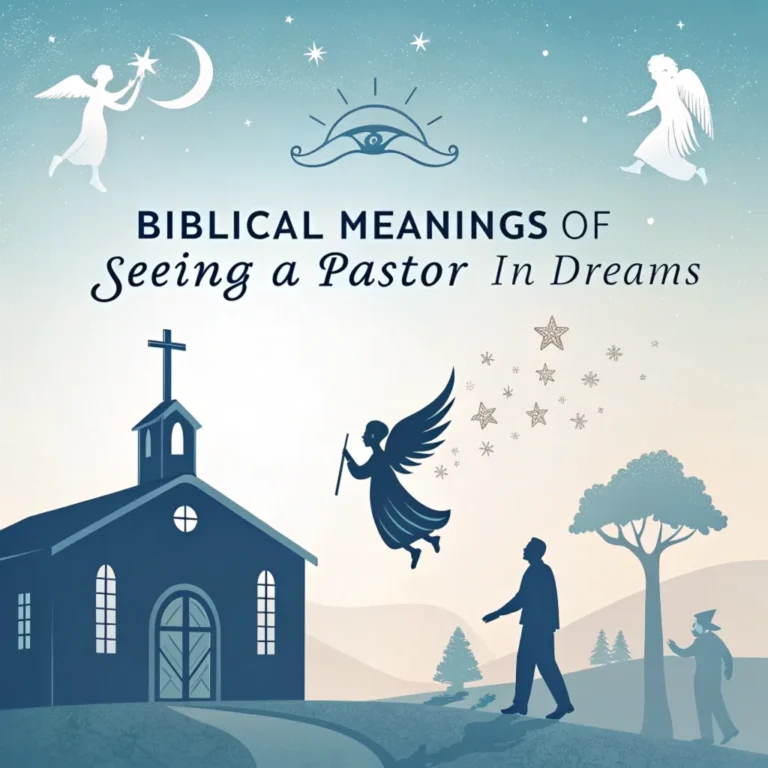16 Bible Verses on Friendship and Family: Strengthening Bonds Through Faith
The Bible offers profound wisdom on the importance of friendship and family.
These relationships form the foundation of our lives, providing support, love, and guidance.
This post explores 16 inspiring Bible verses that highlight the value of these connections and provide insights on how to nurture them.

Key Takeaways
- Friendship in the Bible is seen as a source of strength and support
- True friends are described as those who love unconditionally and stand by us in difficult times
- The Bible emphasizes the importance of choosing friends wisely
- Family bonds are portrayed as sacred and essential for personal growth
- Scripture encourages us to treat others with kindness and respect, as we would want to be treated ourselves
- The ultimate friendship is exemplified by Jesus’ love for his disciples
- Forgiveness and understanding are key components of healthy relationships
- The Bible teaches us to value and nurture our friendships and family ties
- Proverbs contains many verses on the nature of true friendship
- Jesus’ teachings provide a model for how we should treat our friends and family
The Bible emphasizes the significance of cultivating meaningful relationships with both friends and family.
These connections are essential for our emotional well-being and spiritual growth. Through various passages and teachings, Scripture provides guidance on how to build and maintain these vital relationships.
As we delve into these powerful verses, we’ll discover the profound impact that friendship and family can have on our lives.
Let’s explore the wisdom that the Bible offers on these crucial aspects of human connection.
The Unconditional Love of True Friendship
The Bible emphasizes the power of true friendship. Proverbs 17:17 states, “A friend loves at all times, and a brother is born for adversity.”
This verse highlights the unconditional nature of genuine friendship. True friends stand by us through good times and bad, offering unwavering support.
Genuine friendship is characterized by selfless love and unwavering commitment. The Bible teaches us that true friends are those who remain loyal in all circumstances, offering support and encouragement even when faced with challenges.
This unconditional love mirrors the divine love that God has for His children.
In a world where relationships can often be fleeting, the Bible reminds us of the value of enduring friendships.
The Strength of Unity in Friendship

Ecclesiastes 4:9-10 underscores the strength that comes from friendship: “Two are better than one because they have a good return for their labor. For if they fall, one will lift his fellow.”
This passage reminds us that friends can help us accomplish more and provide support when we stumble.
Unity in friendship brings about strength and mutual support. The Bible teaches us that when we join forces with our friends, we can achieve more than we could alone. This principle applies not only to physical labor but also to emotional and spiritual endeavors.
True friends lift each other up in times of need and celebrate each other’s successes.
Choosing Friends Wisely
The Bible advises us to be careful in our choice of friends. Proverbs 13:20 warns, “Whoever walks with the wise becomes wise, but the companion of fools will suffer harm.”
This verse encourages us to surround ourselves with positive influences that will help us grow and improve.
Selecting our friends wisely is a crucial aspect of personal growth and spiritual development. The Bible recognizes that the people we associate with can have a significant impact on our character and decisions.
By choosing friends who embody wisdom and virtue, we position ourselves for positive growth.
This biblical principle reminds us to be intentional about our relationships.
The Power of Encouragement

1 Thessalonians 5:11 emphasizes the importance of mutual encouragement: “Therefore encourage one another and build each other up, just as in fact you are doing.”
This verse reminds us to uplift and support our friends and family members.
Encouragement plays a vital role in strengthening relationships and fostering personal growth. The Bible teaches us that by offering words of support and affirmation, we can help our friends and family members overcome challenges and reach their full potential.
This biblical principle reminds us of the power of positive words in our relationships.
Treating Others with Kindness
Luke 6:31 provides a fundamental principle for all relationships: “And as you wish that others would do to you, do so to them.”
This golden rule encourages us to treat others with the same kindness and respect we desire for ourselves.
The principle of treating others with kindness is a cornerstone of biblical teaching on relationships. This verse reminds us to approach our interactions with empathy and compassion, considering how we would want to be treated in similar situations.
By applying this principle, we can foster more harmonious and fulfilling relationships.
Kindness in our relationships reflects God’s love for us.
The Ultimate Example of Friendship
John 15:13 presents Jesus’ ultimate example of friendship: “Greater love has no one than this: to lay down one’s life for one’s friends.”
This verse illustrates the sacrificial nature of true friendship and sets a high standard for how we should value our relationships.
Jesus’ sacrificial love serves as the ultimate model for friendship. This verse challenges us to consider the depth of our commitment to our friends and family.
It reminds us that true friendship often requires selflessness and a willingness to put others’ needs before our own.
This biblical example inspires us to cultivate deeper, more meaningful relationships.
Forgiveness in Relationships
Colossians 3:13 teaches us about forgiveness in relationships: “Bear with each other and forgive one another if any of you has a grievance against someone. Forgive as the Lord forgave you.”
This verse reminds us to practice forgiveness in our friendships and family relationships.
Forgiveness is a crucial component of healthy relationships. The Bible recognizes that conflicts and misunderstandings are inevitable in human interactions.
However, it encourages us to approach these situations with a spirit of forgiveness, mirroring the forgiveness we have received from God.
This biblical principle helps us maintain and restore relationships.
The Value of Honest Counsel
Proverbs 27:9 highlights the value of a friend’s honest advice: “Oil and perfume make the heart glad, and the sweetness of a friend comes from his earnest counsel.”
This verse suggests that true friends offer sincere and helpful advice.
Honest counsel from a friend is compared to the pleasant effects of oil and perfume, highlighting its value and importance.
The Bible teaches us that true friends are those who are willing to speak truth into our lives, even when it may be difficult to hear. This honesty contributes to our personal growth and well-being.
True friendship involves both support and constructive guidance.
The Importance of Family Bonds
Proverbs 27:10 emphasizes the importance of maintaining family ties: “Do not forsake your friend or a friend of your family, and do not go to your relative’s house when disaster strikes you—better a neighbor nearby than a relative far away.” This verse encourages us to nurture our family relationships.
The Bible recognizes the unique significance of family bonds. This verse reminds us to value and maintain our family relationships, even as we cultivate friendships.
It suggests that proximity and availability are important factors in times of need, highlighting the practical aspects of relationship maintenance.
Balancing family ties and friendships is essential for a fulfilling life.
The Joy of Unity
Psalms 133:1 expresses the joy of unity: “Behold, how good and pleasant it is when brothers dwell in unity!” This verse celebrates the harmony and happiness that come from strong family bonds.
Unity within families brings joy and fulfillment. The Bible portrays family harmony as a source of pleasure and goodness.
This verse encourages us to strive for unity in our family relationships, recognizing the positive impact it has on our overall well-being.
Cultivating unity in families reflects God’s design for human relationships.
The Danger of Gossip in Relationships
Proverbs 16:28 warns against the dangers of gossip: “A perverse person stirs up conflict, and a gossip separates close friends.”
This verse reminds us to be careful with our words and avoid spreading rumors that can damage relationships.
Gossip can have a destructive effect on relationships. The Bible cautions us against engaging in or spreading harmful talk, recognizing its potential to create conflict and divide even close friends. This teaching encourages us to practice discretion and kindness in our speech.
Guarding our words helps preserve and strengthen our relationships.
The Importance of Loyalty
Proverbs 18:24 speaks about the loyalty of true friends: “One who has unreliable friends soon comes to ruin, but there is a friend who sticks closer than a brother.” This verse emphasizes the value of dependable friendships.
Loyalty is a key characteristic of true friendship. The Bible contrasts the negative impact of unreliable friends with the positive influence of a loyal friend.
This verse suggests that a truly loyal friend can be even closer than family, highlighting the depth and significance of such relationships.
Cultivating loyalty in our friendships enriches our lives.
The Role of Friends in Difficult Times
Job 2:11 illustrates how friends can provide comfort in difficult times: “When Job’s three friends, Eliphaz the Temanite, Bildad the Shuhite and Zophar the Naamathite, heard about all the troubles that had come upon him, they set out from their homes and met together by agreement to go and sympathize with him and comfort him.”
This verse shows the importance of supporting friends during challenging periods.
True friends offer support during times of hardship. The Bible provides this example of friends coming together to comfort someone in distress.
This passage highlights the practical aspects of friendship, showing how friends can provide emotional support and physical presence during difficult times.
Supporting friends in need is a crucial aspect of genuine friendship.
The Blessing of Friendship
Proverbs 27:17 compares friendship to the sharpening of iron: “As iron sharpens iron, so one person sharpens another.” This verse suggests that good friends can help us improve and grow.
Friendship can be a catalyst for personal growth. The Bible uses this metaphor to illustrate how friends can challenge and refine each other, leading to mutual improvement.
This verse encourages us to seek friendships that inspire us to become better versions of ourselves.
Positive friendships contribute to our personal development.
The Command to Love One Another
1 John 4:11 reminds us of God’s love and our duty to love others: “Dear friends, since God loved us that much, we surely ought to love each other.”
This verse encourages us to extend the love we receive from God to our friends and family.
The Bible teaches that our love for others should be a reflection of God’s love for us. This verse reminds us of the abundant love we have received from God and calls us to extend that same love to those around us. This principle forms the foundation for all our relationships.
Loving others as God loves us transforms our relationships.
The Blessing of Restored Relationships
Job 42:10 shows the blessings that can come from praying for others: “After Job had prayed for his friends, the Lord restored his fortunes and gave him twice as much as he had before.”
This verse illustrates the power of forgiveness and intercession in relationships.
Restoration in relationships can bring unexpected blessings. The Bible presents this example of how praying for others, even those who may have wronged us, can lead to personal blessings. This verse encourages us to prioritize reconciliation and forgiveness in our relationships.
Seeking restoration in relationships can lead to personal growth and blessings.
In conclusion, these 16 Bible verses provide profound insights into the nature and importance of friendship and family.
They offer guidance on how to cultivate strong, meaningful relationships that reflect God’s love and contribute to our personal growth.
By applying these biblical principles, we can enrich our lives and the lives of those around us, creating a network of support, love, and mutual encouragement.
FAQs
How does the Bible define friendship?
The Bible defines friendship as a relationship characterized by love, loyalty, and mutual support. True friends are those who stand by us in good times and bad, offer honest advice, and help us grow spiritually and personally.
What does the Bible say about choosing friends?
The Bible advises us to choose our friends wisely. It encourages us to associate with those who are wise and virtuous, as they can positively influence our character and behavior.
How can we strengthen our friendships according to the Bible?
According to the Bible, we can strengthen our friendships by practicing forgiveness, offering encouragement, providing honest counsel, and treating others as we would want to be treated.
What role does family play in biblical teachings?
In biblical teachings, family is seen as a fundamental unit of society. The Bible emphasizes the importance of honoring parents, loving siblings, and maintaining strong family bonds.
How does Jesus exemplify friendship in the Bible?
Jesus exemplifies friendship through His unconditional love, sacrifice, and willingness to share His knowledge with His disciples. He demonstrates the ultimate act of friendship by laying down His life for others.
What does the Bible say about resolving conflicts in relationships?
The Bible encourages us to resolve conflicts through forgiveness, honest communication, and mutual understanding. It advises against gossip and emphasizes the importance of addressing issues directly with the person involved.
How can we apply biblical principles of friendship in our daily lives?
We can apply biblical principles of friendship by being loyal, offering support in difficult times, providing honest advice, practicing forgiveness, and treating others with kindness and respect.

Samantha is the author of Inner Light Spirituality, where she shares insights and guidance to inspire others on their spiritual journeys. With a passion for exploring various spiritual traditions, Samantha aims to make spirituality accessible and relatable. Through her writing, she encourages readers to embrace their unique paths and find meaning in their experiences. When not writing, she enjoys meditating and connecting with nature.







